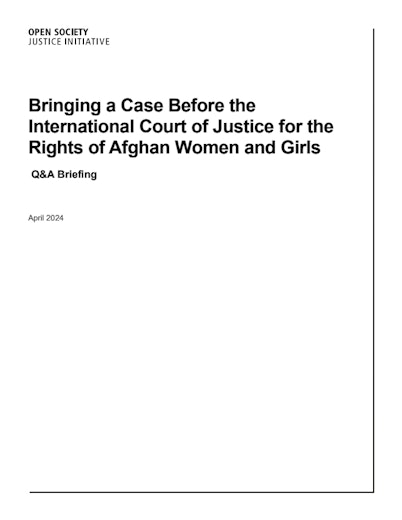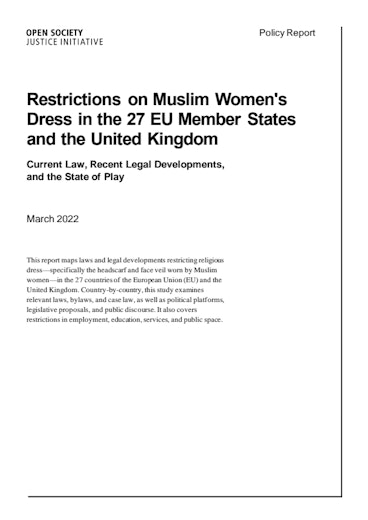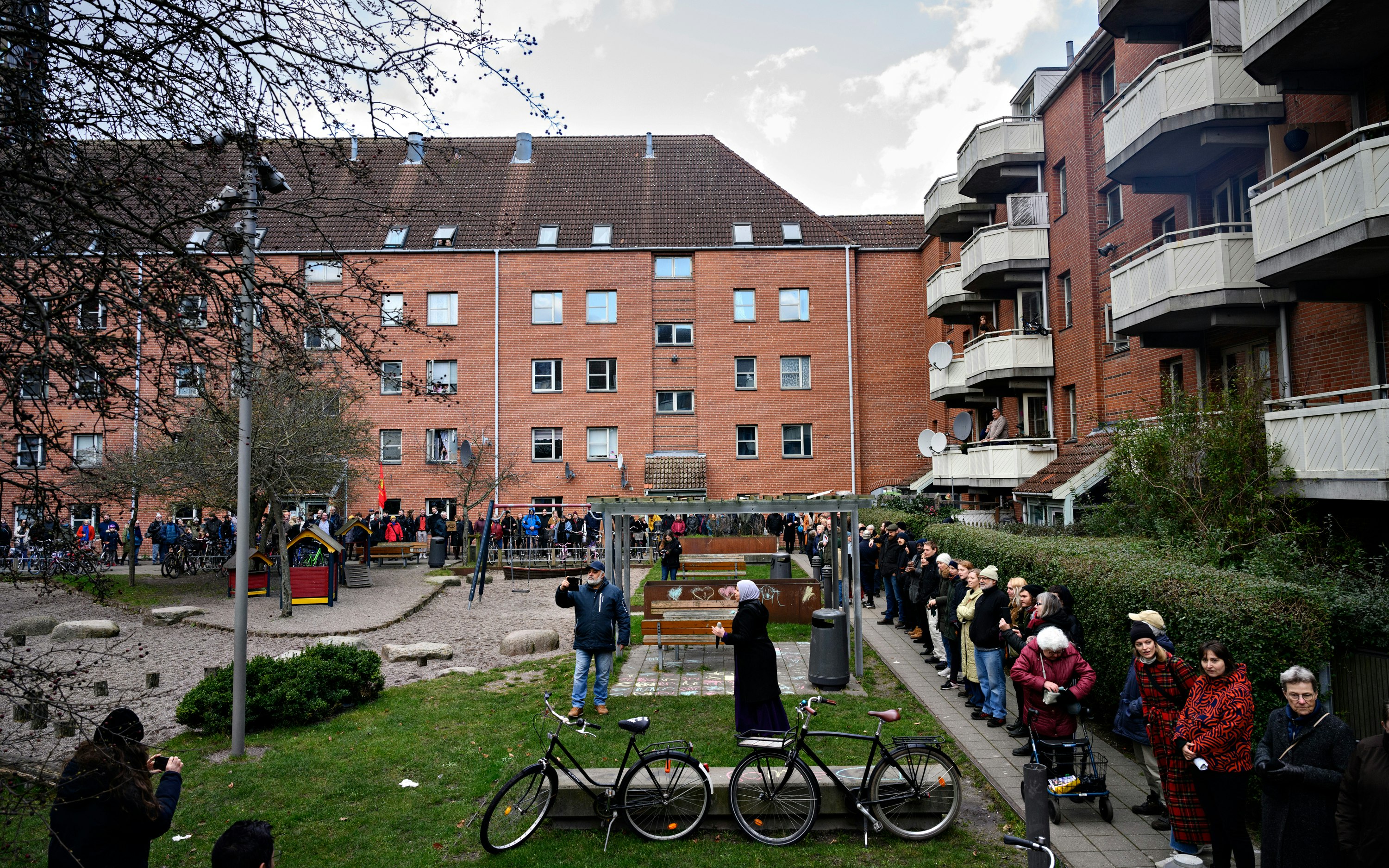HP v. Denmark
Torture Victim Faces Discrimination in 15-Year Struggle for Citizenship
HP was tortured in Iran before fleeing the country and coming to Demark through a UN refugee resettlement program in 1989, where his family obtained permanent residency. As a result of his torture, HP developed chronic psychiatric conditions that have prevented him from learning Danish at the level required to qualify for citizenship. He watched his family members obtain nationality, but was unable to do so himself. As a refugee he no longer has a connection to his country of birth, and may not travel there. Yet, over a period of more than 15 years, he was denied the citizenship of his adopted country, where he has lived for decades. On January 19, 2017, the European Court of Human Rights concluded that the case had been resolved because HP became a naturalized citizen of Denmark in June 2015. The court awarded costs, and noted that the Danish Ministry of Justice had yet to address an outstanding claim for compensation in Denmark.
Facts
HP was born in Iran and was an economist by training, working in the accounting department of Volvo and Citroen in the early 1970s. Following the revolution he became active in opposing the new regime. In 1983, he was arrested, detained, and subjected to torture over a period of several years. In 1987, he escaped to Turkey, and in 1989 he was relocated to Denmark through a resettlement program of the Office of the United Nations High Commissioner for Refugees (UNHCR). His family arrived in Denmark as refugees in 1989, and they obtained permanent resident status in 1990.
As a result of his torture in Iran, HP developed chronic psychiatric conditions which prevent him from working, and in 1997 he was granted early retirement due to his illness. His condition has also left him unable to concentrate.
The application process for Danish citizenship includes a language examination. Until 2002, the language assessment took place during an interview with a police officer and required an assessment at “level 1” of proficiency. In 2006, following a change of government and a new policy restricting immigration, the testing requirements were tightened and applicants were required to demonstrate a higher level of language proficiency. Between 1998 and 2009, HP applied eight times for nationality and was, on each occasion, denied nationality due to his lack of proficiency in Danish. Although he attended a total of 1,105 hours of Danish language classes by May 2009, he was not judged to have a sufficient level of language competence and was denied citizenship.
At the time of the first five denials of nationality there was a policy in force that exempted torture survivors with mental disorders from having to pass the Danish language test in order to be granted citizenship, but the authorities had failed to apply the exemption to HP. In 2006 the new government removed the exemption, and HP could not rely on it for his later applications.
The prolonged denial of citizenship has had a profound effect on HP. As a refugee he no longer has a connection to his country of birth, and may not travel there. Yet he is denied the citizenship of the country that he has adopted, where he has lived for 20 years, and the country of citizenship of his family. The refusal to grant him citizenship has deprived him of the right to know who he is, to establish details of his legal identity, to form the political and legal bonds that connect him to Denmark, to acquire and exercise rights and obligations inherent to membership in a political community.
Open Society Justice Initiative Involvement
The Open Society Justice Initiative is representing HP in his application to the European Court of Human Rights, , as co-counsel with the Documentary and Advisory Centre on Racial Discrimination (DACoRD).
Arguments
Private Life. The denial of Danish citizenship has left HP stateless and is a disproportionate interference with his right to private life under Article 8, interfering with his physical and psychological integrity, which includes his right to develop relationships in the community. The determination of his citizenship status concerns his legal identity, human dignity, and personal development. HP’s situation has had such an impact upon his private life as to fall within the scope of Article 8 (private and family life).
Discrimination. Denmark has failed to treat the applicant differently on account of his vulnerable status as a stateless refugee suffering from a learning disability as a result of torture, breaching Article 8 ECHR in conjunction with Article 14 ECHR (non-discrimination).
In its decision of January 19, 2017, the European Court of Human Rights considered that HP had been granted Danish citizenship as of June 25, 2015, and determined that the action by Danish authorities resolved the case under Article 37, section 1(b) of the Convention. The court took note of HP’s outstanding request for pecuniary and non-pecuniary damages to the Danish government, which HP’s counsel will pursue domestically.
European Court of Human Rights decides that the case has been resolved after HP acquires Danish nationality, awarding costs to the applicant.
HP receives his Danish citizenship certificate, 17 years after he first applied.
HP listed on naturalization bill, adopted by the Danish parliament on 25 June.
Application filed to the European Court of Human Rights.
Eighth denial of citizenship via an in camera deliberation of the Parliamentary Committee.
First denial of citizenship. Language instruction continues.
Early retirement due to his medical condition.
HP is settled in Denmark by the UNHCR, obtaining permanent residency in 1990.
HP escapes from Iran with his wife and children and is granted refugee status.
The applicant is arrested on his way home from work and subject to detention and torture for several years.
Related Cases
Nubian Community in Kenya v. Kenya
Africa's human rights tribunal found that members of Kenya's Nubian community face arbitrary procedures that restrict their access to vital national identity documents.
Children of Nubian Descent in Kenya v. Kenya
The African Committee of Experts on the Rights and Welfare of the Child found that children of Kenya's Nubian minority face discrimination leading to statelessness, violating African human rights standards.
Bueno v. Dominican Republic
This case is about statelessness in the Dominican Republic. It focuses on a Dominican man who was denied identity documents because he was of Haitian descent.
Related Work
Q&A: Bringing a Case Before the International Court of Justice for the Rights of Afghan Women and Girls
This paper considers 21 questions around the feasibility of bringing a complaint at the International Court of Justice against Afghanistan's Taliban for egregious and prevalent violations of women’s and girls’ rights.

Restrictions on Muslim Women's Dress in the 27 EU Member States and the United Kingdom
This policy brief and accompanying fact sheet map EU and UK laws and pending legislation restricting religious dress—specifically the headscarf and face veil worn by Muslim women.

Evidence Suggests Evictions in a Danish Neighborhood were Racially Biased. Now the Case is Before the High Court.
This case may set an important precedent for standards for discrimination in Denmark.
